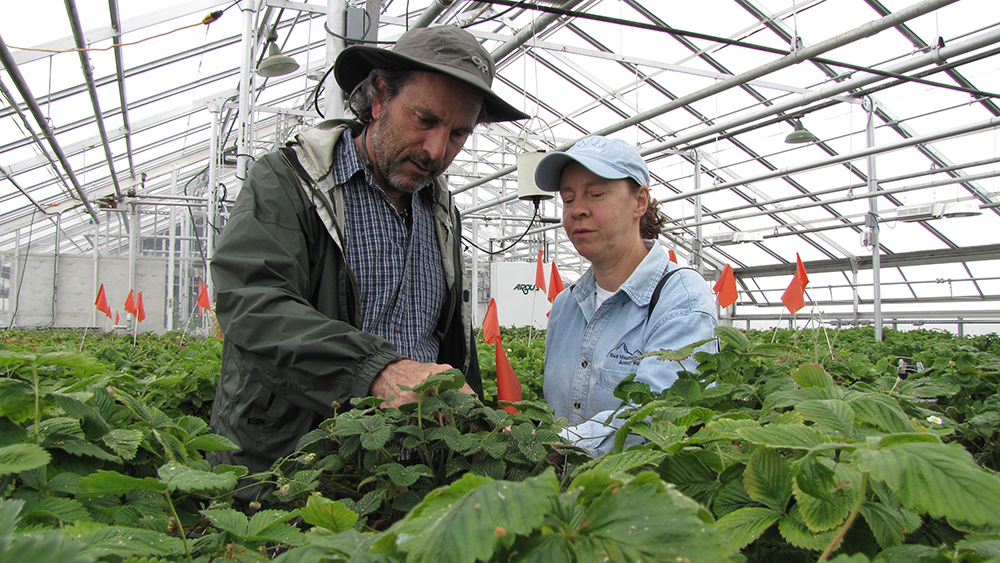New England Poised to Take Bigger Slice of Sweet Potato Pie
In the first study of the performance of modern sweet potato cultivars in northern regions, University of New Hampshire researchers have found that sweet potatoes can be a viable crop for growers in areas with short growing seasons such as New England.















































 Strawberry shortcake. Strawberry rhubarb pie. Strawberry ice cream. Summertime in New England wouldn’t be the same without these bountiful, sweet, juicy berries.
Strawberry shortcake. Strawberry rhubarb pie. Strawberry ice cream. Summertime in New England wouldn’t be the same without these bountiful, sweet, juicy berries.